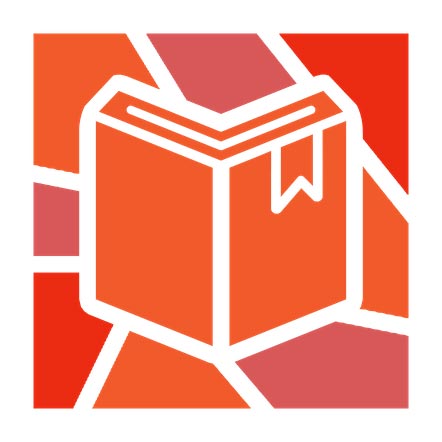The Learning Imperative
The Power of Systems agenda is grounded in five imperatives, each of which is further articulated by a set of challenges caused by structural, policy, and practice barriers.

Learning
There is no such thing as a 'traditional’ college student. One-size-fits-all approaches to teaching and learning have hindered students’ prospects for success. We must shift the postsecondary experience from institution-centric to student-centric to increase completion rates and help students attain their future goals.
Challenges
How can we:
- Teach and support students recognizing individual learning and social-emotional needs.
- Advance equity in academic and experiential curricula.
- Design flexible pathways and shared credentials to streamline completion.
- Align transfer policies, practices, and processes for seamless movement of credits.
Here are some of the ways NASH members are meeting the challenges of the Learning Imperative:
Southern Illinois University Edwardsville (SIUE), Southern Illinois University System Expand
At SIUE, just 35% of Black students who enroll earn a degree after six years. SIUE is committed to closing this equity gap with the Black Scholar Experience (BSE)—a comprehensive academic and advising program designed to engage students and strengthen their ability to graduate. Through the development of academic cohorts, proactive advising, and educational programming that highlights African American ideas and interests, the BSE builds upon the positive outcomes of initiatives already offered through SIUE and is expanding offerings from a select group of 40-50 first-year Black students each year to serve all incoming Black students.
This program is designed to enhance both the achievement and educational experience for exemplary Black male students. Two students from each of the System’s nine-member institutions make up yearly cohorts participating in a three-year program focusing on three key areas—academics, social and career advancement, and community service. The RFL Scholars Program draws from research that Black male achievement is best accomplished by prioritizing academic endeavors over social programming.
The program recognizes that adults who want to return to school have significantly more competing priorities than traditional students and provides solutions including a personal coach, reduced tuition rates, and adult-friendly programs. In its first 36 months, Compete LA successfully completed outreach to a total of 5,699 potential students, with 1,216 students applying and 874 students enrolling in the program. This first cohort of students completed an average of 74.16 credit hours, and 206 students obtained their degree.
Sam Houston State University, Texas State University System Expand
Program participants attend guest speaker series, weekly small group meetings, seminars, social activities, and community service. Additionally, program participants work with their professors to complete academic progress reports to support grade awareness and engagement with faculty. Their experience and development are chronicled through a portfolio which serves as a personal and professional record of their accomplishments, skills, and development. SH ELITE has resulted in average one-year retention rates 16% above non-program participants, as well as in 4- and 6-year graduation rates 7% and 15%, respectively, higher than non-program participants.
Commonwealth University, Pennsylvania State System of Higher Education (PASSHE) Expand
Through participation in the NASH Improvement Community on Transfer, Commonwealth conducted an audit of all current students who had an associate’s degree and adjusted their degree audits accordingly to show the completion of the general education requirements. These changes positioned a number of students to graduate earlier than previously anticipated, reducing their total cost of attendance through shortening time to degree completion. Taking this work further with application of their Transfer Credit Framework, Commonwealth has audited the transcripts of all students who transferred in 30-59 credits to identify those who may have already fully satisfied general education requirements. Based on a fall 2022 audit, 456 students were able to receive a total of 2,414 additional transfer credits.
Through participation in the NASH Improvement Community on Transfer, the Kentucky CPE has worked with Western Kentucky University and Southcentral Kentucky Community and Technical College to identify unnecessary obstacles to the in-state vertical transfer process and to implement short-term, reactive changes to address those obstacles. CPE plans to implement this rapid improvement process with additional sets of partners, which would include one regional university and at least one feeder community college.
In 2017, NMSU saw an opportunity to serve the community and ensure that incarcerated people have access to robust educational services that prepare them for both higher education and 21<sup>st</sup>-century jobs. Classes began in Spring of 2017 at two women’s facilities, with students taking courses to earn certificates in Web Fundamentals, Computer Technology, and Creative Media. Students in the program have achieved 24 certificate completions since 2019, and 3 students have also completed societal re-entry with certificate in hand.
In a randomized controlled trial, TCI interventions have already proven to improve student retention. The TCI has three components that use evidence-based strategies known to increase students’ academic resiliency:
- Letting Go and Staying Connected: Provide parents and their WSU-bound children with a handbook including interactive exercises, tools, and strategies for identifying core values, developing a sense of purpose, and engaging in values-based decision making.
- LAUNCH: Peer-mentoring program to facilitate students’ early connection with, and involvement in, high-impact learning opportunities
- Lift. Inspire. Foster. Transform. (LIFT): Four-part faculty development workshop series on pedagogies and behavior interventions that foster connection and belonging, values-based decision-making, mindfulness and self-compassion, and resiliency and growth mindset.
The RI Reconnect program is an initiative that deploys navigators to provide one-on-one coaching and resources to individuals looking to enter or re-matriculate at a RI institution of higher education or enroll in a postsecondary training program from start to finish. Since being launched in 2020, 2,844 students have experienced the strength in educational support in a wide range of outreach initiatives. The NASH RRI will support RIOPC in developing a funding model and community-based implementation plan to expand and scale up this already successful initiative to all Rhode Island postsecondary students—including those resettled as refugees.
